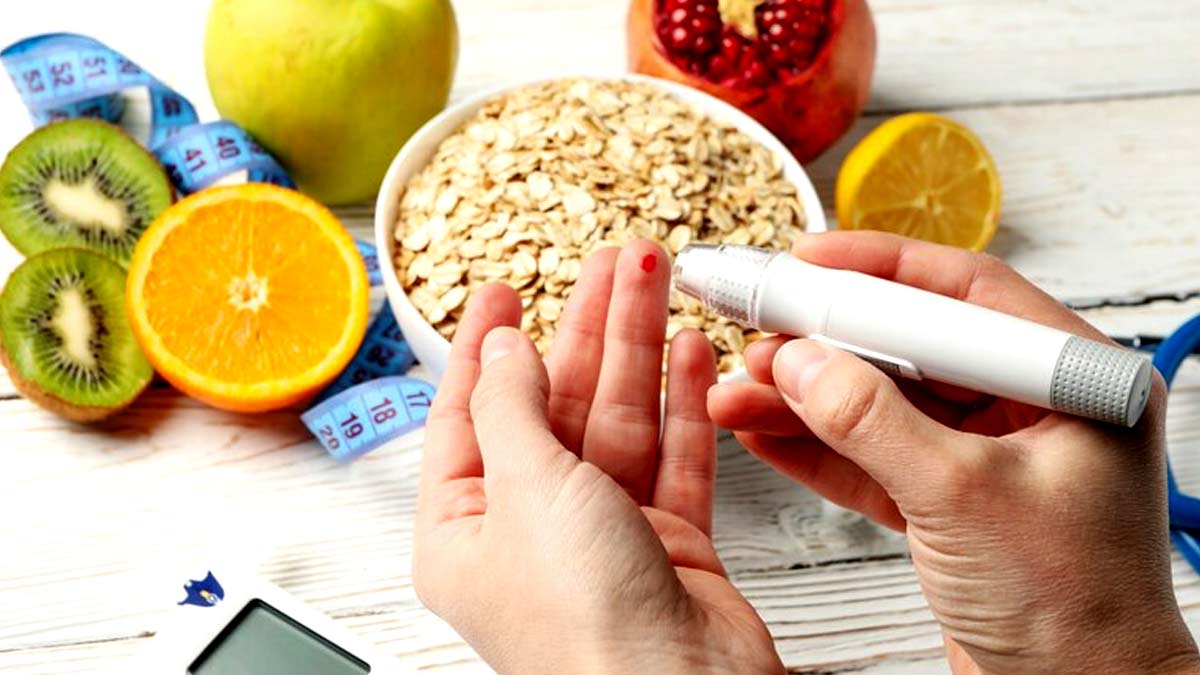
Do you often feel tired and low on energy after lunch? That's because of the post-lunch blood sugar spike, which can leave you feeling drained and unproductive. As time goes on, your body's ability to effectively lower blood sugar may decline, increasing the risk of developing type 2 diabetes. Also, elevated blood sugar spikes can result in the hardening and narrowing of blood vessels, potentially increasing the risk of a heart attack or stroke.
We spoke to our expert Dr DP Singh, MD (Internal Medicine), Regency Superspeciality Hospital, who shared tips to prevent post-lunch blood sugar spikes.
Tips To Prevent Post-Lunch Blood Sugar Spike
Dr Singh said, “Maintaining stable blood sugar levels is crucial for overall health, especially for individuals with diabetes or those at risk of developing it.” Here are some tips to help prevent post-lunch blood sugar spikes:

Balanced Meals
Dr Singh highlighted, “Aim for balanced meals that include a combination of complex carbohydrates, lean protein, and healthy fats. This combination slows down the absorption of sugars, preventing rapid spikes in blood glucose levels. Include vegetables, whole grains, lean meats, fish, nuts, and seeds in your lunch.”
Portion Control
Pay attention to portion sizes, as overeating can lead to spikes in blood sugar. Use smaller plates and listen to your body's hunger and satiety signals to avoid overconsumption.
Also Read: From Increased Hunger To Fatigue: Expert Lists Signs Of Uncontrolled Blood Sugar Levels
Avoid Refined Sugars and Carbs
According to the World Journal of Diabetes, individuals with insulin resistance encounter challenges in processing carbohydrates. Therefore, you should limit or avoid foods and drinks that contain refined sugars and carbohydrates, such as sugary beverages, candies, white bread, and pastries.

Fibre-Rich Foods
Include fibre-rich foods in your lunch, as they slow down the absorption of sugars and promote better blood sugar control. Foods like fruits, vegetables, legumes, and whole grains are excellent sources of fibre.
Slow Eating
Dr Singh said, “Take your time during meals and chew your food completely. Eating slowly can help regulate blood sugar levels and reduce the likelihood of post-meal spikes.”
Avoid Skipping Meals
Unstable blood sugar levels can result from skipping meals. Hence, it's essential to have regular meals and snacks spaced throughout the day to keep your blood sugar levels steady.
Also Read: Skipping Breakfast To Lose Weight: Is It Really Worth It?
Hydration
Stay well-hydrated with water or unsweetened beverages. Dehydration can affect blood sugar levels, so drinking an adequate amount of water is crucial.

Regular Physical Activity
Engaging in regular physical activity, such as walking, cycling, or any form of exercise, can improve insulin sensitivity and help regulate blood sugar levels.
Monitor Carbohydrate Intake
If you have diabetes or are concerned about blood sugar spikes, work with a registered dietitian or healthcare provider to determine an appropriate carbohydrate intake for your individual needs.
Stress Management
High-stress levels can impact blood sugar levels. Practice stress-reducing techniques, such as mindfulness, deep breathing, yoga, or meditation, to help maintain stable blood sugar levels.
Disclaimer
This article contains information provided by the expert. However, it's essential to work with your healthcare professional, especially if you have diabetes or any other medical condition, to develop a personalised plan for managing blood sugar levels.


.jpg)




